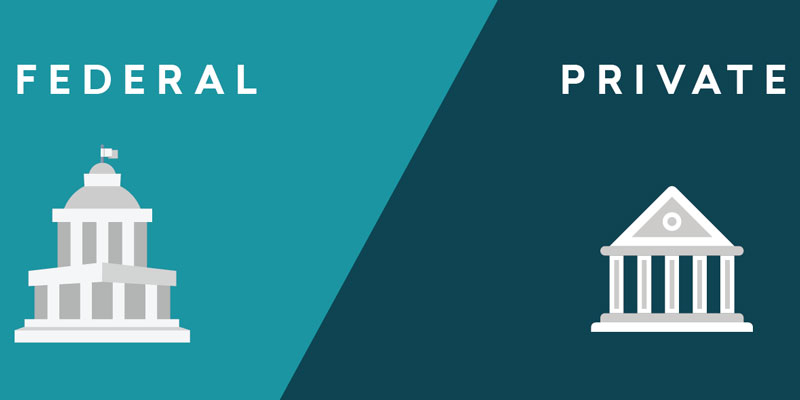Aug 28, 2023 By Susan Kelly

Healthcare can be expensive and medical bills can add up quickly. An increasingly popular way to save for these costs is through a Health Savings Account (HSA). HSAs give individuals the opportunity to set aside funds that they can then use tax-free towards healthcare expenses. If navigating the world of HSAs has you feeling overwhelmed, you've come to the right place. In this blog post, we'll talk about how an HSA works and why it may be a good option for helping manage medical costs. So let's begin by introducing just what an HSA is – and why it might just be exactly what you need to get your financial health in tip top shape!
What is an HSA and how does it work to save for medical expenses?
An HSA, or Health Savings Account, is a powerful tool that can be used to save money for medical expenses. Unlike traditional savings accounts or Flexible Spending Accounts (FSAs), funds in an HSA are not subject to federal income tax when used to pay for qualifying healthcare expenses. Contributions made to an HSA are also tax-deductible, making it an attractive option for those looking to save money on their taxes.
These accounts can only be used by individuals who are covered by a high-deductible health plan, but they offer a number of advantages, including the ability to save for future healthcare needs and the flexibility to use the funds for a variety of expenses. When used wisely, an HSA can be a valuable tool for anyone looking to maximize their healthcare dollars.
Advantages of setting up an HSA:

Setting up a Health Savings Account (HSA) can provide a range of benefits for individuals and families.
- The funds in an HSA grow tax-free and can be used to pay for eligible healthcare expenses, including deductibles, copays, and prescriptions.
- Another appealing aspect of an HSA is that the account is portable, allowing individuals to take it with them if they change jobs or retire.
- An HSA can be a smart choice for those who want to save money on healthcare costs while also taking a proactive approach to their personal finances.
Understanding tax advantages when saving with an HSA:
For those interested in maximizing their savings while also taking advantage of potential tax benefits, a Health Savings Account (HSA) may be worth considering. These contributions are made pre-tax, which means that they come out of your paycheck before taxes are withheld. Furthermore, the money in an HSA can be invested, potentially increasing the account's balance even further. Understanding the tax advantages of using an HSA to save for medical expenses can be complex, but the potential benefits make it a valuable tool for those looking to take control of their healthcare costs and financial future.
Contributing to an HSA and utilizing the funds?
A Health Savings Account or HSA is a great way to save for medical expenses, while also providing tax benefits. By contributing to an HSA, you can save money on healthcare expenses, including deductibles, co-pays, and prescriptions. The funds in your HSA can be used to pay for medical expenses not covered by insurance. Any unused funds can roll over to the next year, allowing you to build your savings even further.
Utilizing your HSA can help you manage your medical expenses and save money in the process. It's important to understand all the details of your HSA plan, including the maximum contributions allowed and eligible expenses. With careful planning and responsible spending, an HSA can help you take control of your healthcare expenses and overall financial wellness.
Different ways to invest your money with an HSA?

Investing your money in a health savings account (HSA) can be a smart financial move. Not only do HSAs provide tax benefits and the flexibility to pay for medical expenses, but they also offer opportunities for investment growth. There are several ways to invest in an HSA, including mutual funds, exchange-traded funds (ETFs), and individual stocks.
Mutual funds are a popular option, as they allow for diversification and are managed by experienced professionals. ETFs offer similar benefits to mutual funds, but with the added advantage of being traded like stocks. Finally, individual stocks offer the potential for higher returns, but come with higher risk. By exploring these different investment options, you can determine the best approach for your financial goals and risk tolerance.
Conclusion:
It's clear that an HSA offers numerous advantages that can make saving for healthcare easier and more cost-efficient. From tax savings to contributions from your employer, HSAs can be a great way to save money and secure coverage for medical expenses. As long as you do your research before investing and understand how these accounts work, they can be an invaluable resource for both your short-term and long-term financial wellness.
FAQs:
How do I open an HSA and start contributing?
To open an HSA, you should first be enrolled in a high deductible health plan (HDHP). After that, you can open an account through your bank, credit union, or any other financial institution that offers HSAs. Once the account is open, you can start contributing.
Can I invest my HSA funds?
Yes, the money in your HSA can be invested in several ways including mutual funds, exchange-traded funds (ETFs), and individual stocks. These investments have the potential to increase the balance of your account over time.
-

Can You Use Rent to Pay Your Mortgage
Jul 01, 2023
-

The Best Auto Refinance Loan Offering Companies Of 2022
Dec 07, 2021
-

Top 5 Places for Affordable Retirement Living in Tennessee:
Jul 01, 2023
-

Private Vs. Federal College Loans: A Comparison in 2022
Mar 13, 2022
-

How Much Energy Solar Panels Produce
Jul 03, 2023
-

Closing on a New House: Obstacles to Avoid
Aug 08, 2022
-

What Size Can You Afford?
Aug 02, 2022
-

Credit Card Debt Statistics
Jun 16, 2023



